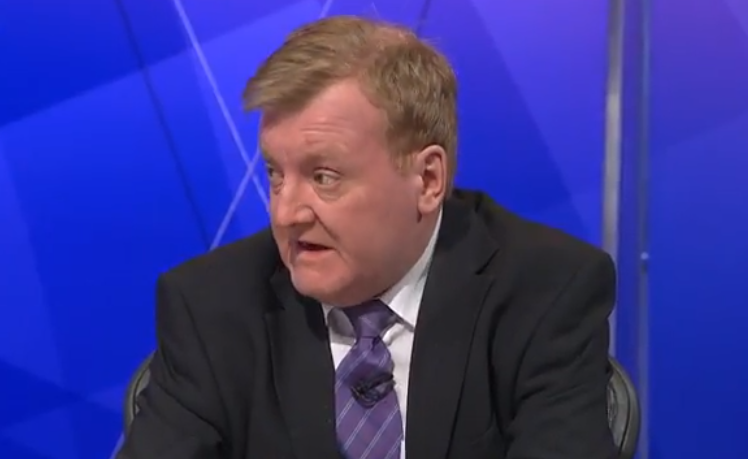Your support helps us to tell the story
From reproductive rights to climate change to Big Tech, The Independent is on the ground when the story is developing. Whether it's investigating the financials of Elon Musk's pro-Trump PAC or producing our latest documentary, 'The A Word', which shines a light on the American women fighting for reproductive rights, we know how important it is to parse out the facts from the messaging.
At such a critical moment in US history, we need reporters on the ground. Your donation allows us to keep sending journalists to speak to both sides of the story.
The Independent is trusted by Americans across the entire political spectrum. And unlike many other quality news outlets, we choose not to lock Americans out of our reporting and analysis with paywalls. We believe quality journalism should be available to everyone, paid for by those who can afford it.
Your support makes all the difference.Charles Kennedy’s appearance on Question Time last week raised a few digital eyebrows among the Twitterati. Plenty suggested his performance was, at best, below par; and certainly at times it was uncomfortable to watch. We may never know the reasons for Kennedy’s mishap. And speculating feels a little tawdry, however unavoidable the discussion about his appearance.
Nonetheless, the incident also led to questions about the BBC’s role in putting Kennedy on its panel. Were the producers oblivious to any apparent problem? Frankly, it is a little simplistic to assume that a person can be judged in the green room on their likely performance when the cameras roll.
All this got me wondering about the broader question of how journalists obtain information from sources who are, for whatever reason, under the weather or vulnerable. The rules are clear that if someone says they don’t want to respond to a journalistic inquiry then questioning must end. But what if a person is not in a position to make a cogent judgement about whether to comment? Is the onus on a reporter to walk away from a conversation which might embarrass the subject of the inquiry; or is everything fair in love, war and journalism?
It is certainly accepted that a person who is grieving should be treated with particular sensitivity. And patients in hospitals are off limits unless senior staff consent and the individual is compos mentis. Interviews with children on subjects involving their welfare – or the welfare of another child – should not take place without parental consent.
But these are all quite specific areas. What about an 18-year-old who has never dealt with the media before and says something stupid? And what if a journalist arrives on a doorstep to be confronted by someone who is obviously under the influence of drugs or drink? Should adults with learning disabilities be treated differently to those without?
Each case, in the end, has to be treated in the context of its specific circumstances. Journalists should always try to ensure that a person understands, for instance, if they are being asked to comment on something with a view to publication. And there may be occasions when someone’s comments should be discounted because they were made at a time of susceptibility.
Yet there is a fine line between showing consideration and being patronising. Moreover, there will be times when comments made under the influence are certainly worthy of being reported. Think John Galliano.
But at least in the newspaper world the contact between journalist and subject comes prior to publication. There is no such time for deliberation with live television.
Chicken sexing causes a flutter
An article about chicken sexing did not seem likely to provoke complaints. Yet our description of how the process determined whether chicks would be “assigned to lives as roosters or egg-layers” caused a flutter.
As readers pointed out, rather than living happily as roosters, male chicks from egg-producing hybrids are usually sent straight to the great farmyard in the sky. By failing to go into the gory detail – perhaps even just by our use of the word “lives” – we had created a potentially misleading impression.
For while it is self-evident that there are certain types of farming for which there is little need of males – egg laying, milk production – it would be a leap to assume that all readers are aware that selective breeding has created laying-hen strains which are distinct from meat producing types.
A lack of detail can leave us with egg on our faces.
Will Gore is Deputy Managing Editor of The Independent, i, Independent on Sunday and the Evening Standard
Twitter: @willjgore


Join our commenting forum
Join thought-provoking conversations, follow other Independent readers and see their replies
Comments